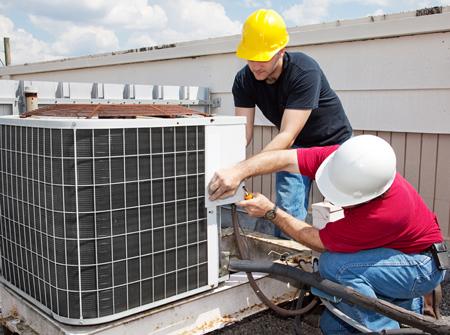<p style="text-align: justify">As the season grows colder, and we start seeing the icy claws of winter rake themselves across our homes once more, the time comes to start looking at things that will need protecting from cold snaps and frost. In particular your AC unit, no longer being required now that temperatures are so low, will need to be safeguarded from environmental damage as it hibernates for the dark months. Special considerations for your AC unit this winter may well be essential to preventing damage next year, damage you may not notice until you try to switch the unit on the next year.</p>
<h2 style="text-align: justify"><strong>The Basics</strong></h2>
<p style="text-align: justify">If you are not sure where your air conditioning unit it, it can usually be found outside your house attached to one of the external walls. Usually, there’s a plastic or metal lid or covering that covers the primary electrical circuits. Inside this cover, you’ll find the On/Off switch. Make sure it is switched off, as you will not will not need it for now. You may also wish to wash out the AC unit with a hose to wash out dead bugs, bird droppings, and general detritus. If you find any leaves, branches or other larger leavings still trapped inside, remove these too. Then you should allow the unit to dry out completely. Make sure the lid is lowered again, as this will prevent water from getting into the system and freezing.</p>
<h2 style="text-align: justify"><strong>Use Proper Covering</strong></h2>
<p style="text-align: justify">Some people are tempted to wrap up their AC units with cloth or plastic tarp for the winter to help keep out moisture, however the effectiveness of this is highly questionable. While a wrapping may certainly keep twigs, grass clippings and leaves from getting clogged up in the AC’s systems, it is not air tight, and moisture will still seep in. What’s more, it will remain trapped under the tarp and will condense against the unit. This will cause metal parts to rust. Without the wrapping, this moisture would be free to dry.</p>
<p style="text-align: justify">The warm, protective wrappings may also encourage rodents to move in, who will then happily gnaw at the AC’s wiring and other component parts, as well as leave bits of nest and droppings on the remaining system. Should they die inside the AC unit this winter, their bodies may also clog up moving parts.</p>
<p style="text-align: justify">It is much easier and safer to place a large plywood plank on the fan guard and weigh it down with bricks or heavy stones. This will protect the fan from rain, snow and falling icicles, as well as prevent local wildlife from slipping inside. You can use bungee cords to secure the plank further in place. Metallic parts, such as the casing or grill, can be protected by simply covering them with car wax. This will prevent the worst of the rusting, and will only need touching up every few weeks or so. Failing that, it’s also possible to buy AC unit coverings especially designed to protect during the winter, so if you don’t mind spending a few extra bucks on one feel free to pick a cover up from a homeware store.</p>
<h2 style="text-align: justify"><strong>Exterior Pipes</strong></h2>
<p style="text-align: justify">You may also want to cover up any exposed exterior pipes with a foam pipe covering when you are done. Doing so will insulate the pipes, and prevent any water trapped inside them from freezing and damaging the system. Use duct tape around the ends to keep the coverings in place.</p>
<p style="text-align: justify">Check your coverings at least once a week to make sure everything is still secure, and make adjustments as necessary. Be sure to remove any snow, branches or leaves from the AC unit as well, to help keep it dry and covered.</p>
<h2 style="text-align: justify"><strong>Remove Window Units</strong></h2>
<p style="text-align: justify">Should you possess any window units, remove them from the window and drain them completely of water. Then find a dry room within the house and store them in an upright position. If they are too heavy, or there’s no room with enough space for them, just close up the vents and cover the unit with a specially made cover.</p>
<p style="text-align: justify">The writer, Christian Mills, is something of a home improvement buff who is always trying to find ways to keep his house in top condition regardless of what comes his way. For keeping his home intact he highly recommends visiting bobheinmiller.com. You can learn more about Christian on Google+.</p>

Special Considerations For Your AC Unit This Winter
